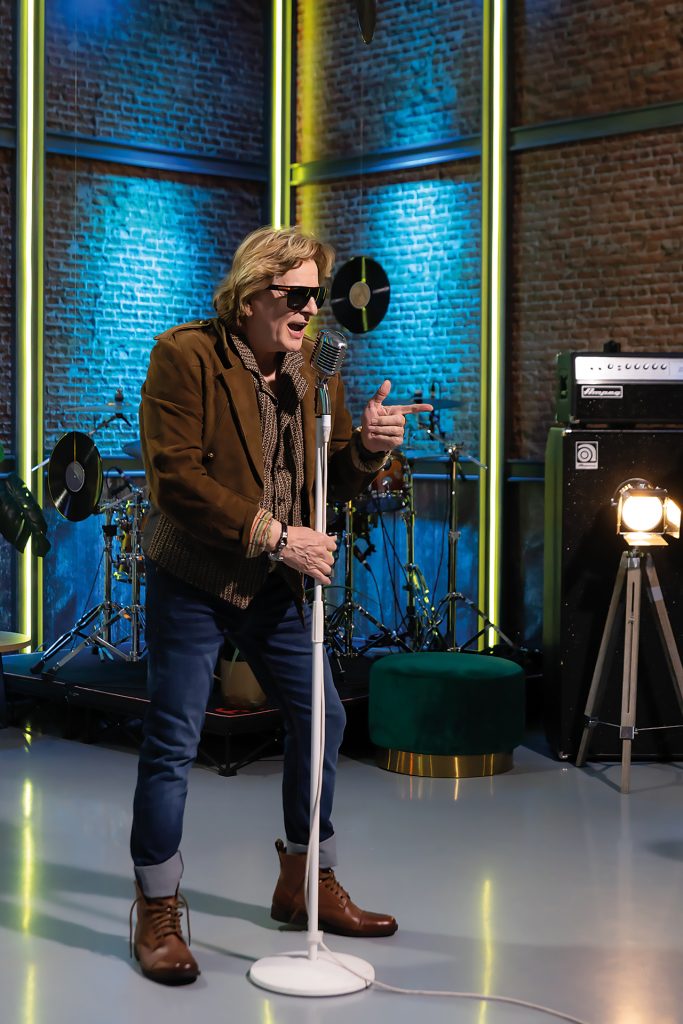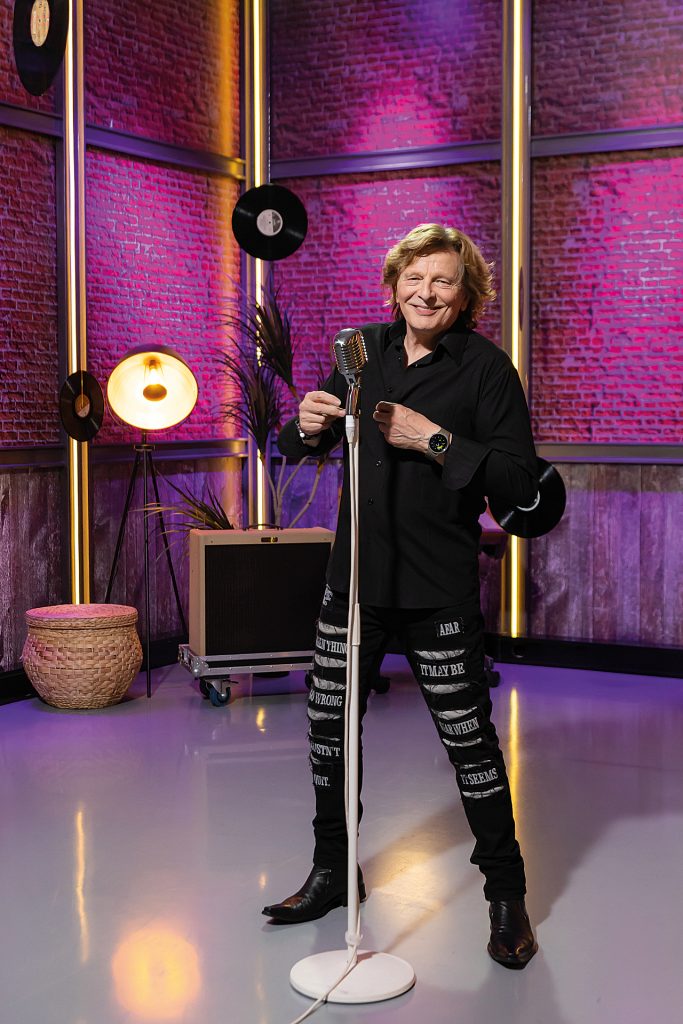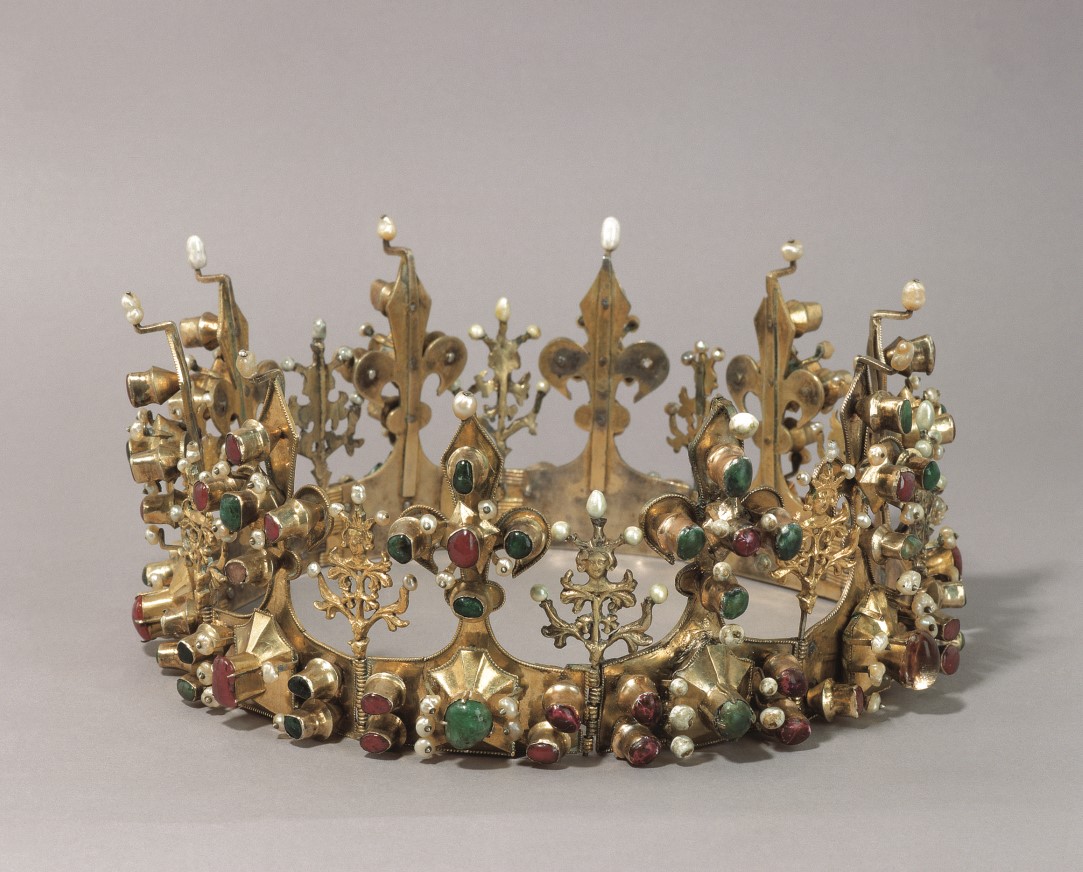Written by: Sonja Staničić
Photos: Karla Matulina
…
When he stepped onto the Eurovision stage in 1983 and impressed with his performance and the song “Džuli”, the entire music world learned about the young Daniel Popović. His gentle appearance, countertenor voice, and the song that immediately won everyone over placed him overnight alongside the giants of the music scene of the time: “Džuli” became a true hit across Europe.
Daniel Popović (69) did not remain just a “one-hit wonder.” Over 43 years of discographic presence, this composer, lyricist, guitarist, singer, arranger, and producer released twenty albums, two of them in English. He wrote numerous songs for other performers, and his successful collaborations with Jasna Zlokić, Doris Dragović, Jasmin Stavros, Severina, Alka Vuica, Meri Cetinić, Zlatko Pejaković, Ivana Banfić, Sergej Ćetković, Minea, Zrinko Tutić, Bebek, and many others testify to his inexhaustible creativity. He also worked under pseudonyms, persistently creating even when he was in the media’s shadow.
Born as Milan Popović into a family of a Montenegrin doctor and a Belgian pianist, he appeared on stage already in high school, winning the Titograd Spring Festival, which actually marked the beginning of his career. He further perfected his musical education at the Music Academy in Graz, where he graduated in classical guitar and obtained a master’s degree in composition and arrangement. Painting, sculpture, and interior design are also not foreign to him because, as he says, he has always been an aesthete inclined toward creating beauty.
Today, after half a century on the music scene, with a new album he is returning to his chanson beginnings. Songs written during years of silence bring sincere stories of love, pain, partings, and hopes. Open and poetic, honest and direct, Daniel Popović shared his life story with us…


At the mention of your name, for many even today the first association is the legendary “Džuli”. Surely you couldn’t have guessed back then that it would follow you through all these decades?
I have always proudly emphasized that “Džuli” is my identity card. Why wouldn’t I? This cheerful song with a typical yodelling moment became a Eurovision evergreen. To this day it appears on over 200 European compilations—in my original performance or in covers, both vocal and instrumental.
Some of the covers were made after 2000, which only confirms that I was the “moral winner” of that Eurovision in Munich. Back then I wasn’t even aware of the scope of its popularity; I can only see that now, with more than four decades of distance.
Your convincing victory in the Yugoslav national selection for Eurovision caused a kind of scandal in certain circles of journalists and music managers, mainly because with “Džuli” you defeated the biggest favorite of the competition—Lepa Brena.
No one expected my victory. Least of all me. I travelled to Novi Sad for Jugovizija by train, completely alone. I had no team, nor was I an established name. And when I won and thus secured a performance at Eurovision, a real hunt against me began across the former state. They said: “How is it possible that this pale plagiarist defeated our Brena Nationale?” and cried that “Europe will never know that we also have legs fit for running…”
The song played everywhere, overnight fans started following me wherever I went. Those months were something straight out of “believe it or not”. Although by then, thanks to numerous tours across Europe as a guitarist and backing vocalist, I was already musically experienced, I was caught off guard by that whirlwind of show business which pulled me in with full force.
I was young, not wise enough, and I had no one to advise me on important matters.
In the times that followed, you achieved the status of a big star and one of the most famous singers in Yugoslavia. How did you deal with the pressure of fame?
When you’re young, you’re not really aware of the burden of fame. By nature introverted and reserved, I often felt lonely in that crowd, with my own movie playing in my head. Sometimes I literally ran away from fans who were everywhere. Each wanted to touch me, to be close to me at least for a moment. They would grab me, tear my clothes, all accompanied by deafening screams.
At that time, I was on the music charts among the top 30 bestselling singles in Germany, Switzerland, France, the Netherlands, Belgium, Austria, Sweden, Denmark, and Norway.
I recorded my second album in Oslo and Trondheim, accompanied by the Oslo Philharmonic Orchestra. The night before the album release, the shop windows of music stores were filled with my records and cassettes. It all seemed unreal.

To what extent was the whole situation a blessing, and to what extent a burden?
It’s hard for me to answer… Maybe, from today’s perspective, it was more of a burden. I always only wanted to play guitar and sing. I was given the blessing of musical talent at birth, and through work and practice I developed that gift. And fame? I really never chased after it. It happened, I think, as some kind of reward for all the effort I had put in until then.
You performed a lot, went on many tours. Can you recall one that left a special memory?
I fondly remember my first tour in the USSR, when I went with the Montenegrin vocal-instrumental ensemble
Entuzijasti. We accompanied big names of the Yugoslav scene. When someone that young finds himself in such a vast land, he learns quickly, almost on the run, if not in flight. We played three concerts a day, every day, for three months.
The audience was wonderful. Those people lived on the minimum of existence, but their concert culture was at the highest level. The halls were filled to the last seat, everyone dressed in their best clothes, and at the end of the concert, with applause and ovations, they showered us with flowers.
When we wanted to call home, the call had to be booked two weeks in advance. It would be connected at a precise time. The conversation was, of course, monitored. And what could you even say to your family except: “I’m fine, everything’s great, how are you?”
Moving from city to city could be quite exhausting, especially when you carried a guitar, amplifier, and lots of clothes, so I came up with the idea to wear only leather. It was easy to maintain, windproof, and didn’t wrinkle. On tour, I only had leather suits which I would wipe down at night with a towel soaked in lukewarm water and shampoo, let them dry, and put them back on in the morning.
How did you decide to change your name to the stage name Daniel?
My grandfather Đuro, my mother’s father, was in King Nikola’s army. After it disbanded, he went with his brother to Belgium and there, disappointed by circumstances, he changed his name to Daniel.
We loved each other very much, I was his favourite. That gentle and kind man with four daughters and my grandmother Matilda, a Belgian, often took care of me for weeks. My father was a doctor, a paediatrician, and often travelled for work. Usually my mother, sister Mirjana, and older brother Dragan joined him, while I stayed with my grandparents. I grew up surrounded by love. When my grandfather was dying, I spent time by his bedside, and at the funeral I couldn’t part from his coffin. That’s where my name comes from—as a precious memory of him.

Do you remember your grandparents on your father’s side?
They were different from my mother’s. My other grandfather Milo had stricter views on raising both children and grandchildren. Order had to be maintained, there was a clear schedule of when to help him and grandma with farm work, when to play, when to eat, and when to rest. He was extremely strong, strict, and fair.
You grew up with a Montenegrin father and a Belgian mother – an interesting blend of two very different cultures, right? How much influence did your pianist mother have on your musical expression?
My mother was a woman woven from emotions and hopes. When I went with her to visit my aunt and grandmother in Belgium, she pointed out details to me, for example how even older people there held hands. We lived in an environment that, especially in the sixties, did not look kindly upon such things. If someone in Podgorica walked with a girlfriend holding her hand, he either had to get married or break off the relationship. My Montenegro, a land of “heights more than widths”, my “tear in stone”, was not really a place for public displays of emotion.
She met my father by chance in Zagreb, where he was studying medicine. And then that beautiful, special, always made-up and dressed woman came with him to live in Podgorica. My father worked a lot and often went on visits, and my mother used every free moment, mostly evenings, to play the piano and sing chansons. As the youngest, and somehow closest to her in sensitivity, I sat next to her and absorbed those sounds. I think she longed for her native Belgium…
We lived in the very canter of Podgorica, and from the terrace of a nearby hotel old folk music often drifted. Faced with that, I quickly realized that my soul gave birth to ballads and that the Anglo-Saxon musical expression was much closer to me. So musically, my mother had a decisive influence on me.
If we generalize, Montenegrins are said to be characterized by courage, spirit, and their famous “čojstvo.” How much do you see yourself in that?
I must add a few details about my wonderful, honourable father Filip. He always said that the truth sets you free and that we should never allow someone to repeat a lie ten times because then it would become the truth. He taught us to be humane, honest, and order was always known with him. He encouraged us to clear and wash our own plates after meals to help our mother. He taught us to look at a person only through their qualities, not their religion or nationality. Finally, he taught us that a woman must be respected.
From such upbringing comes my failure to recognize situations and late steps regarding my many marriages. I measured people by myself. I didn’t expect betrayals, but they happened, especially when I suddenly became popular. I believed my wives married me because they respected me, but now I know that wasn’t the case. If they had respected me, they would never have publicly said all the things they did. I allowed too much, stayed silent… Nowhere could you read that I said anything bad about my ex-wives.

You have gone through different life experiences, as a husband and as a father. How do you see marriage and fatherhood today?
I married four times. The first time before military service. We were both very young, and thanks to her, Mirjana from Zagreb, I moved to Zagreb. Interestingly, my father liked her a lot, and she could converse nicely with him, although he usually kept his distance.
My second wife Sanja was then in the modelling world, so it was natural that our paths crossed. She was the one who filed for divorce after 12 years of marriage. I left her everything on the condition that she always let me see our children—Sebastian and Kim. And I was present in their lives as much as my obligations allowed.
I met my third wife Sandra thanks to Sanja, who insisted I take her as a dancer on my Norwegian tour in 1991/1992, although she was not an ideal choice in terms of appearance and stage experience. Until then, professional Ivana Banfić regularly performed with me.
But life writes novels… After the divorce, Sandra separated our son Dominik from me and raised him with the false belief that I was a domestic abuser. I was only allowed to communicate with him in her presence or at social services. Later, after all that, she offered to dance in my new video, invited me for a drink, to the cinema for a child’s birthday… Isn’t it a bit illogical for a woman to offer to dance in the video of a man who allegedly beat her? But fine…
My next partner, not wife, was Maja, truly a lightning-like love, and our daughter Ana-Marija was born from that love. With Maja I remained on correct terms, and we respected our agreements.
Today I am married to Aleksandra, for 19 years now. We are both Scorpios so it can be fiery, but we “click” (laughs).
All my children have a talent for music, and in one way or another, both Sebastian and Izabela and Ana Marija are involved in it. Dominik went his own way. As for character, I feel that my daughters resemble me more. Especially Izabela, she is truly “daddy’s girl”.
You have started over several times, changed living spaces, moved around… One might say you have a restless spirit? Where do you currently live?
I always point out that a person must cross the borders of their own country, feel how life is elsewhere. You won’t learn anything sitting at home.
I have the good quality that I was never a materialist attached to walls. Wherever the road took me, I managed to make a home. Although a dreamer by nature, I am surprisingly practical. I made furniture, birdhouses, equipped each of my studios, installed electricity, restored furniture, repaired cars, even made a four-story wooden house for our rabbits…
My wife and I found our peace in Slovenia. It is a truly orderly country where everything works according to the law, where order is respected. Slovenians love their country and show it at every step—with care for the community, cleanliness, and nature.

Is it true that you plan to build a hotel in Podgorica?
Our parents left us quite a bit of land around Podgorica. It’s a wonderful area: the Zeta river, beautiful nature, closeness to Lake Skadar and the sea. My grandfather Milo had a house with a cellar and yard there. I intended to build a hotel there, in authentic style.
You have many talents and interests. How would you present yourself in one sentence today?
I would present myself as a cosmopolitan, an altruist, a lover of music, an eternal fighter for truth and justice, a respecter of women and a lover of nature, aware that each of us must, day by day, give our small contribution to preserving the planet that is home to us all. We should be aware that we own nothing forever and that we will take nothing with us.
Let’s go back to music a little. So far you have recorded about twenty solo albums, you write songs, arrangements, you are a music producer. What makes you happiest today, what do you most enjoy?
I most enjoy playing the guitar and the process of creating a melody. I know the melody is right when I shed at least a small tear to it. Later it is all a matter of skill, creative work, inspiration, and knowledge of the craft.
And what are you especially proud of?
I will be completely honest—of the fact that I know and can do everything myself. From the first tone to mastering, the whole project. That’s how my CD “Fantazija” was created. I compose, write lyrics, play guitars, program, sing lead vocals, sing my own backing vocals. I am lucky to be a countertenor and use falsetto, and I have absolute pitch so I can easily sing a third or sixth above myself.
I was among the few who could sing a third above a music diva like Meri Cetinić.
We are happy to hear that a new album is coming. Can you briefly present it?
The songs for the new album were created during the years of my, so to speak, insufficient media exposure, at a time when I was already thinking of leaving them unpublished. But during the lockdown I listened to them a lot and realized that stylistically they were quite uniform and that it would be a truly valuable and high-quality album.
The songs were born from pure emotion and are a true picture of me, my sensibility. Each one is a story of my life, each carries a message and a question that everyone must answer for themselves.
My idea was not for this album to flirt with the commercial, but to present me as I see myself. I am an emotional man. Sometimes I don’t even know how to escape the eye of the storm when a hurricane erupts in my soul.
I believe in the quality of these songs and I am sure that everyone will find themselves in one of them because they were born in the soul of a chansonnier.
What would you say today to that young Daniel who stepped onto the Eurovision stage in Munich?
Oh, a tough question. Well, maybe for starters, to pause a little and think about how to further develop his career. I would tell him to insist on a team of people with whom he would build everything, with whom he would work in mutual interest, with mutual respect.
I would tell him to hire a photographer to take pictures and record all tours, concerts, atmosphere, guest appearances, interviews, and also to make some business decisions more in his own favour, and not so much in the favour of others.
Then I would tell him not to rush into marriage, to first try to really get to know the person with whom he intends to share life and build a family…

